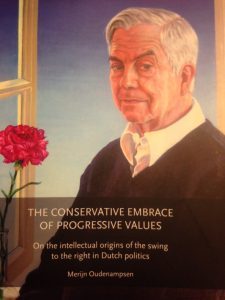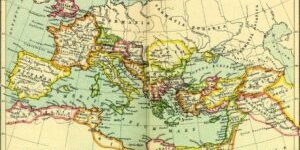Merijn Oudenampsen ~ The Conservative Embrace Of Progressive Values. On The Intellectual Origins Of The Swing To The Right In Dutch Politics
No Comments yet To talk of ideology in the Netherlands is to court controversy. The Dutch are not exceptional in that sense. Ideology is known internationally to have a bad reputation. After all, the word first came into common use when it was employed by Napoleon as a swearword. But the Dutch distaste for ideology seems to have taken on particularly sharp features. The country lacks a prominent tradition of political theory and political ideology research and often perceives itself as having achieved the end of ideology. Taking recourse to Mannheim’s sociology of ideas, I have attempted to contest that image and fill a small part of the lacuna of Dutch ideology studies. The book started out with an attempt to formulate – in broad strokes – an explanation for the peculiarly apolitical atmosphere in Dutch intellectual life.
To talk of ideology in the Netherlands is to court controversy. The Dutch are not exceptional in that sense. Ideology is known internationally to have a bad reputation. After all, the word first came into common use when it was employed by Napoleon as a swearword. But the Dutch distaste for ideology seems to have taken on particularly sharp features. The country lacks a prominent tradition of political theory and political ideology research and often perceives itself as having achieved the end of ideology. Taking recourse to Mannheim’s sociology of ideas, I have attempted to contest that image and fill a small part of the lacuna of Dutch ideology studies. The book started out with an attempt to formulate – in broad strokes – an explanation for the peculiarly apolitical atmosphere in Dutch intellectual life.
The relative absence of ideological thought in the Netherlands, I have argued, can be traced back to the historical dominance of one particular form of ideological thought: an organicist doctrine that considers Dutch society as a differentiated, historically grown, organic whole. It considers the state and the media as the passive reflection of societal developments, with elites serving as conduits. Organicism is a sceptical, relativist ideology that stresses harmony and historical continuity. Shared by the twentieth-century elites of the different currents in the Netherlands, this ideology has been depicted as the metaphorical roof uniting the different pillars. It has filtered through Dutch intellectual history in complex forms, to emerge in more contemporary manifestations such as Lijphart’s pluralist theory of accommodation.
The thesis of this book is that this has resulted in a lingering tendency in the literature to downplay conflict, rupture and ideology in Dutch history. And instead to favour more harmonious portrayals of Dutch society developing gradually and continuously as a unity, as an organic whole. When it comes to the Fortuyn revolt, a similar inclination has resulted in depoliticized interpretations of the revolt as the exclusive imprint of secular trends that Dutch politics and media simply needed to reflect. Hans Daalder, the doyen of Dutch political science, argued that there is a political incentive to depoliticize matters in the Dutch political system. In the context of the close relationship between politics and social science in the Netherlands, this has given rise to a paradoxical reality: the more politically involved social science becomes, the more depoliticized it needs to become. Ironically, this means that a more autonomous social science will need to repoliticize its account of Dutch political transformation to some degree. That is what this study has sought to do.
See: https://pure.uvt.nl/Oudenampsen_Conservative.pdf
Comments
Leave a Reply








